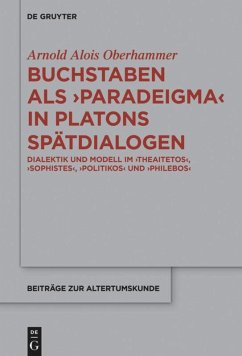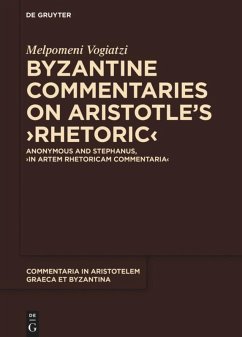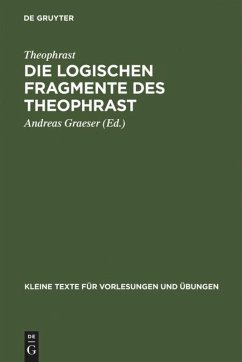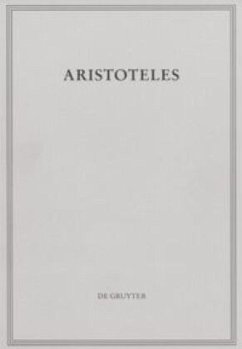Nicht lieferbar
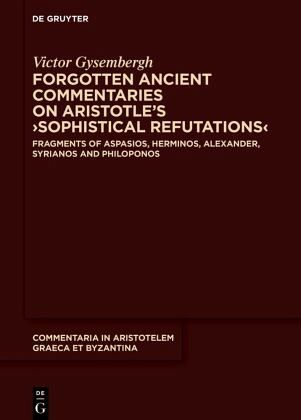
Forgotten ancient commentaries on Aristotle's 'Sophistical Refutations'
Fragments of Aspasios, Herminos, Alexander, Syrianos and Philoponos
Versandkostenfrei!
Nicht lieferbar
How were Aristotle's Sophistical Refutations read in Antiquity? What were the perceived intentions, messages and problems of this treatise, the last within the Organon?This book presents newly discovered fragments from the lost ancient commentaries by Aspasios, Herminos, Alexander and Syrianos on Aristotle's Sophistical Refutations. After presenting the fragments, which were preserved by the humanist and philosopher Agostino Nifo (ca. 1473-1538), the introduction makes the case for their authenticity. There follows an edition of the fragments, accompanied by a translation and detailed commenta...
How were Aristotle's Sophistical Refutations read in Antiquity? What were the perceived intentions, messages and problems of this treatise, the last within the Organon?
This book presents newly discovered fragments from the lost ancient commentaries by Aspasios, Herminos, Alexander and Syrianos on Aristotle's Sophistical Refutations. After presenting the fragments, which were preserved by the humanist and philosopher Agostino Nifo (ca. 1473-1538), the introduction makes the case for their authenticity. There follows an edition of the fragments, accompanied by a translation and detailed commentary. This material sheds new light on the history and philosophy of logic, and especially on the theory of fallacies. It further documents how the Sophistical Refutations were interpreted and used in ancient Aristotelianism. Finally, it complements our knowledge of the philosophy of two major Aristotelians, Herminos and his pupil, the great Alexander of Aphrodisias.
This study is of immediate relevance to readers with an interest in philosophy, logic, history, and/or Greco-Roman antiquity. Because it concerns the use and abuse of fallacies, and ways to counteract them, it also has countless practical applications in all fields of mundane life.
This book presents newly discovered fragments from the lost ancient commentaries by Aspasios, Herminos, Alexander and Syrianos on Aristotle's Sophistical Refutations. After presenting the fragments, which were preserved by the humanist and philosopher Agostino Nifo (ca. 1473-1538), the introduction makes the case for their authenticity. There follows an edition of the fragments, accompanied by a translation and detailed commentary. This material sheds new light on the history and philosophy of logic, and especially on the theory of fallacies. It further documents how the Sophistical Refutations were interpreted and used in ancient Aristotelianism. Finally, it complements our knowledge of the philosophy of two major Aristotelians, Herminos and his pupil, the great Alexander of Aphrodisias.
This study is of immediate relevance to readers with an interest in philosophy, logic, history, and/or Greco-Roman antiquity. Because it concerns the use and abuse of fallacies, and ways to counteract them, it also has countless practical applications in all fields of mundane life.




